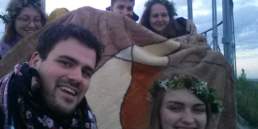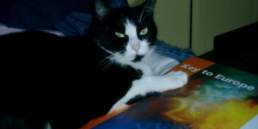Among all the elections, delegates of Spring Agora Kraków have the delicate task to elect the next leader of our organisation. One of the two candidates is Matis Joab, former president of AEGEE-Tallin. The 28-year old brings to the elections skills, a strong focus on locals and Network management and the goal to reduce bureaucracy in AEGEE. Matis: “Making AEGEE grow AEGEE must be the number one priority”. Get to know him better with the interview below!
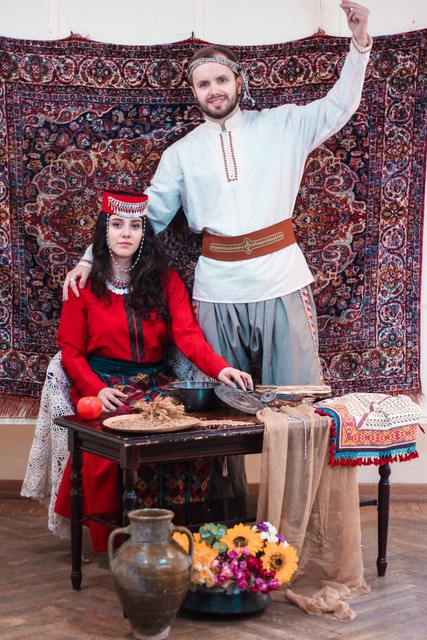 Erika Bettin: Can you please introduce yourself? How did you join AEGEE?
Erika Bettin: Can you please introduce yourself? How did you join AEGEE?
Matis Joab: I’m 28 years old and I’m from Tallinn, Estonia. I joined AEGEE four years ago. At first I did it just to go to an SU, because I missed my Erasmus days in France. Then I discovered what an amazing organisation it is and the potential it has to make people’s lives better and give invaluable experiences. At the time, my antenna was quite inactive. Courageously, but only barely being kept alive by two board members. I helped to organise already the second local activity I attended. I became the president of my local after being a member for less than six months while convincing several other fresh members to join the board with me. Just a couple of weeks ago, I handed off the presidency of that local, now very much alive and kicking and more importantly also growing. (Matis smiles)
What did you do beyond AEGEE, what are your passions?
During those same four years, I was also constantly working full time as a consultant, a project manager and sales manager in different companies. I finally finished my bachelor’s studies and got my master’s degree in Management. Between all that I somehow also found the time to have many awesome adventures, make scores of friends and have a lot of fun. My passions are travelling and meeting new people, but also changing people’s lives for the better, as corny as it sounds. When people whom I’ve recruited to AEGEE or who have participated in the events I’ve organised, tell me what a life-changing experience it’s been, that’s what has always kept me motivated in AEGEE.
What is your vision for AEGEE?
My vision of AEGEE is a vision of a large, diverse and growing organisation that has a significant positive impact on the society around it. An organisation that helps the young people of Europe keep faith in the ideals of democracy, diversity and unity, even in uncertain times. An organisation where the members dare to dream big, but also turn their dreams into reality. An organisation that gives people experiences and skills that help them keep having a positive impact on the world long-long after they retire from AEGEE.
Often, candidates for President have quite some experiences in European bodies, giving them a good understanding of the international level of our association. However, some would argue that too much experience can cause inflexibility and being led by routine. How do you view that, and do you think your mainly local oriented experiences will bring a change to this?
I think it is very important for the CD as a whole to have a good mix of both European and local level experience. Looking at the other candidates for CD, Secretary and Financial Director – European level experience definitely won’t be lacking. But I believe a fresh perspective and experience from outside AEGEE as well will provide a lot of value. If elected, I would work to keep the needs of the locals and the network firmly as the priority of the CD and all the European Bodies. Ultimately, the locals are the heart and soul of our association. Everything that can be achieved at the international level of AEGEE depends on the locals and how healthy and numerous they are.
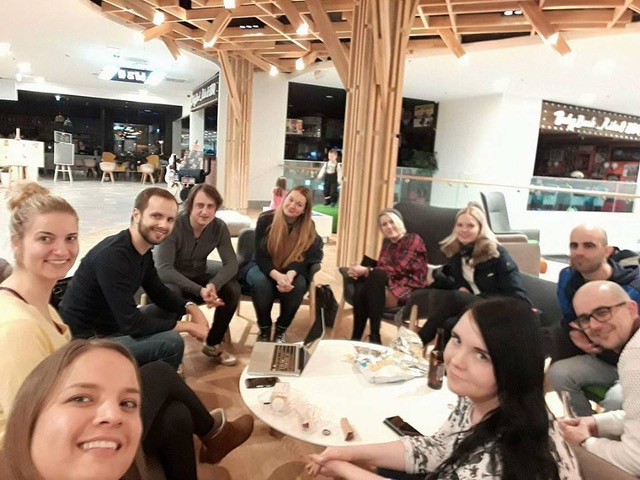 Question from the Network: How are you going to compensate for your lack of European Level experience and the lack of knowledge of the European Bodies?
Question from the Network: How are you going to compensate for your lack of European Level experience and the lack of knowledge of the European Bodies?
I would not say I lack knowledge of the European Bodies. As a long time active and curious member, I believe I have a reasonably good overview of the European Bodies, their functions and working formats. I do of course lack direct experience of working in them. However, I bring to the table a lot of a experience of the local level and of European event organisation. This gives insight into the struggles and successes of the kind of relatively small and middling antennae that make up the majority of our network. I believe that will be valuable in finding a path to growth in both thw number of antennas and the number of European Events they organise. I also bring a lot of management and organisational experience from outside of AEGEE. I have worked full time for a total of six years in the private sector, in positions with responsibilities related to sales, project management and external representation. I have seen the strengths and challenges of both small companies and huge international corporations. I have experience of being in international teams for high-pressure projects and also coordinated the work and communication of several divisions and external contractors at the same time.
Seven people who sometimes do not know each other or never worked together, living and working in the same environment. Seven different ideas on how things should be in AEGEE and new ideas on how to change it. The task of a President is to lead the pack and the direction of the board of directors. What is your primary concern in leading the team? What is your leading style?
My approach would be to take the ideas of all the CD members, including my own, and perhaps even more importantly take the ideas of the network and mould them into a coherent program. I would make sure everyone gets to have their say, but also that a decision is taken once all the relevant arguments have been heard and avoid unnecessary stalling and indecisiveness. I would also make sure the team would also have enough motivational and social activities together to blow off the work stress and keep good interpersonal relations. I would do my utmost to achieve a friendly, creative and productive environment at the AEGEE House.
Connected to the previous one, what will be your approach to solving conflicts?
When people are passionate and striving toward big goals, conflicts are inevitable. Indeed, sometimes they can even be productive. As long as they are constructive and impersonal: Conflicts debates of ideas, debates that don’t descend into ad hominem and attacks on character. When conflicts do become personal or destructive rather than productive, they have to be dealt with. In my experience, the first and most important thing when mediating a conflict is to stay calm yourself and not to take a side, even if you personally have a clear opinion. It’s important to calm the people down, talking to both sides individually if necessary. Then to find the real root of the problem, as sometimes certain arguments are simply proxies for an actual source of annoyance. Then the problem needs to be solved or managed as best as possible. At the same time also appealing to common goals and shared values, to get people to remember of the things that unite, rather than divide them.
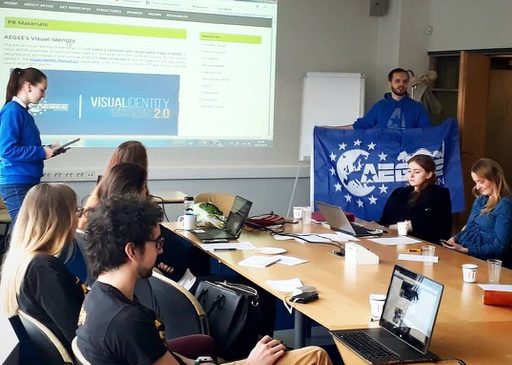
And how much do you think the Network should be aware of them?
If it’s an honest and respectful conflict of ideas or approaches, then asking the network for opinions and having a wider debate could be quite useful. Not to mention the proper thing to do in a democratic organisation. However if it’s a conflict between personalities or if it gets personal or too heated, then the fewer people aware of it the better. Seeing too many personal conflicts can have an impact on the enthusiasm of the network and the motivation of people to apply for CD or other positions in the future. But also because if insults, accusations or grievance becoming public, it can make the conflict itself harder to resolve. It’s simply human nature that people find it more difficult to back down or apologise publicly than they do in private. Perceived public humiliation can also sow resentment and the seeds for future conflicts.
Question from the network: Based what happened within CD55, how would you prevent resignations within the team?
Hopefully the approaches outlined above will help to prevent resignations.
Project management, Internal Education, Network Management, External Relations. If you would have to choose one main focus for your year in CD, what will it be? And why?
All of them are important and I see that none of them are neglected. But if I had to choose one then it would be Network Management. I believe halting the already ten-year long contraction of our network and getting AEGEE to grow again – in terms of members, antennas, events and impact – must be the number one priority of not only the CD, but the entire network.
One of the biggest parts of President portfolio is to deal with External Relations, both in the EU bubble and with other NGOs, often cooperating with them to advocate together. What do you think should be higher in the advocacy process of our association and with which NGOs and European institutions would you pair up to reach the result of a successful advocacy campaign?
The term of CD56 will coincide with the decisive stages of Britain’s exit negotiations from the European Union. Making sure that the detrimental effect of this event on youth and student mobility is a as small as possible should be a key priority for AEGEE. In order to have any kind of significant impact on such a high-level negotiation, AEGEE must work together with all other European and British youth and student organisations and other NGOs that are interested in minimising the negative impact of Brexit for youths.
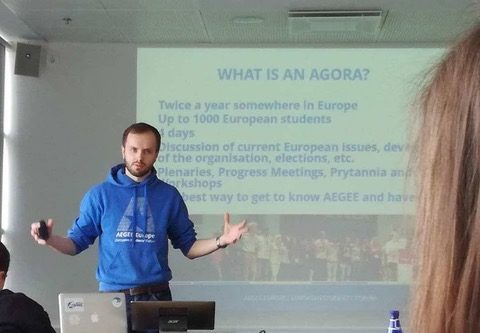 In case you are elected, your CD will take over from CD55. Name one thing of their work you would like to keep working on and one thing that you would implement differently. And why?
In case you are elected, your CD will take over from CD55. Name one thing of their work you would like to keep working on and one thing that you would implement differently. And why?
There are many worthwhile ongoing initiatives from CD55. For example, continuing and developing further the current direction of providing more and higher quality training to the network, in co-operation with the Academy, HRC and NetCom. One thing from the current CD’s Activity Plan that I would implement differently would be the point about “Focus on the enlargement of one geographical area in the network”. The initiative of an antenna founding campaign itself is praiseworthy, although I unfortunately haven’t heard about this one being implemented yet. But I disagree about picking only one geographical area to focus on. Focus is often a good thing, but in this case, the most critical resources for a successful founding campaign, nearby mentor locals and motivated members ready to participate, are also somewhat location-specific. Thus I would not see it as a problem to have multiple founding campaigns happening at more or less the same time period, in different parts of the network. AEGEE needs to take advantage of every opportunity to grow it can find.
Bureaucracy in AEGEE is indeed a handicap that often prevents the Association to grow further. According to your experience, what do you think is the most urgent problem in bureaucracy, and how would you like to reduce it?
The most urgent problem in too much bureaucracy in a volunteer organisation is its negative effect on the enthusiasm of the members. Too much bureaucracy is usually a case of “death by a thousand cuts”. Every single rule by itself is meant to serve a perceptibly useful purpose, but taken together excess rules start to weigh an organisation down. What’s needed to combat this is a strategic and consistent approach: in cooperation with the other European Bodies and based on feedback and dialogue with the locals, I would find out which rules, reports and criteria are posing problems for locals or projects. Analyse whether the importance of the rule, criteria or reporting obligation outweighs the hindrance and if the same aim could be achieved in some other, less taxing way. Take appropriate action based on the conclusions. I would also promote the spirit of the original jurisprudence of the CIA: “Our rules should always fulfil the conditions of stability and flexibility at the same time: We must leave them unchanged as long as possible and only modify them if it is really necessary.” Especially when it comes to adding new rules.
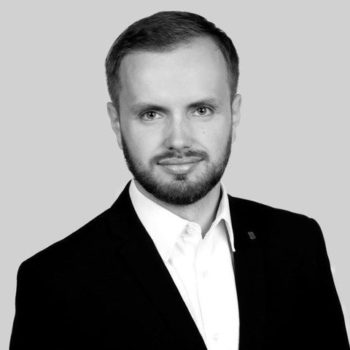 Since the lack of implementation is one of the biggest problems in our association, think for a moment that you are in the Comité Directeur and all your ideas are featured in the CD56 Activity Plan. Pick a project you would like to implement among those listed in your program and create a feasible timeline for it, explaining how you would like to do it.
Since the lack of implementation is one of the biggest problems in our association, think for a moment that you are in the Comité Directeur and all your ideas are featured in the CD56 Activity Plan. Pick a project you would like to implement among those listed in your program and create a feasible timeline for it, explaining how you would like to do it.
I’ll pick the programme for decreasing bureaucracy and enhancing flexibility discussed just above. As a timeline – Agora Istanbul would be the starting point for the dialogue with the network outlined in the previous answer. This dialogue could continue with discussions and feedback sessions at the autumn Network Meetings as well as online discussion and feedback-taking. Reform and simplification proposals based on this process would be developed with the involvement of the affected bodies, then formulated and presented at Spring Agora 2019.
Question form the Network: What do you as a candidate for President of AEGEE-Europe think about the antenna criteria proposal by the current CD?
I strongly agree with the direction of the reform. The current extensive list of formal requirements can seem very intimidating to any motivated people looking to found a new local in their city and also to members thinking of applying for the board of a small local. Especially as these people might very well not know that criteria exceptions are always possible. There are some specific things I would like to clarify with the proposers. For example on the nature of these development plans and the changes to the Working format of the Network Commission that is alluded to. I am very much looking forward to the Prytanium.
Written by Erika Bettin, AEGEE-Verona
You can read Matis’s full candidature here.
Check also the interviews with the other candidates for CD56:
- Monika Mojak for Secretary General
- Luca Bisigini for Financial Director
- Oguzhan Ayhan for Financial Director
- Alejandra Piot for Comité Directeur
- Evrim Emiroğlu for Comité Directeur
- Elena Efremova for Comité Directeur
- Müge Güner for Comité Directeur
- Marco Daniele for Comité Directeur

